Search Results
Showing results 41 to 60 of 434
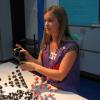
The Electric Squeeze
Source Institutions
In this activity/demo about piezoelectricity, learners discover how some crystals produce electricity when squeezed.
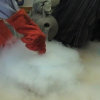
Nano Ice Cream
Source Institutions
In this activity/demo, learners discover how liquid nitrogen cools a creamy mixture at such a rapid rate that it precipitates super fine grained (nano) ice cream.

Gummy Shapes
Source Institutions
In this activity, learners use chemistry to “self-assemble” gummy shapes. Learners discover that self-assembly is a process by which molecules and cells form themselves into functional structures.

Engineering Parachutes
Source Institutions
In this activity, learners will become an engineer by designing and engineering a miniature parachute.
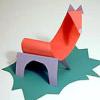
Paper Animals
Source Institutions
This resource contains ideas and brief instructions on how to build animals out of construction paper and other simple materials.

Morphing Butterfly
Source Institutions
In this activity, learners explore how nanosized structures can create brilliant color.

Robot Hands
Source Institutions
This activity (on page 2) explores how sensing is part of robotics. Learners try tying their shoes with different constraints.

Lung Capacity
Source Institutions
This is an activity about lung capacity. Learners will measure their own lung capacity using a homemade spirometer.
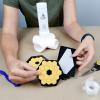
Exploring the Universe: Pack a Space Telescope
Source Institutions
Space telescopes can offer us better, clearer views of the universe (and of our own planet) than Earth-based telescopes can, but getting these large, delicate pieces of equipment into orbit is tricky.
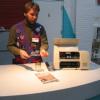
Inkjet Printer
Source Institutions
In this activity, learners investigate how inkjet printers produce tiny, precise drops of ink.
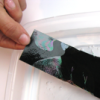
Exploring Materials: Thin Films
Source Institutions
In this activity, learners create a colorful bookmark using a super thin layer of nail polish on water. Learners discover that a thin film creates iridescent, rainbow colors.

Program Your Morning
Source Institutions
In this activity, learners will explore coding by arranging words and phrases to create an order of operations in this low tech version of computer programming.
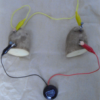
Making a Battery from a Potato
Source Institutions
In this electrochemistry activity, young learners and adult helpers create a battery from a potato to run a clock.
Soaring Towers: Building with Recycled Materials
Source Institutions
In this activity, learners will build the highest tower they can out of recycled materials.
Egg Osmosis
Source Institutions
Visitors observe three beakers. One beaker contains an egg immersed in vinegar. Visitors observe carbon dioxide gas escaping from the shell as the calcium carbonate reacts with the vinegar.

The Poor Cartographer: Graph Coloring
Source Institutions
In this activity, learners help a poor cartographer color in the countries on a map, making sure each country is colored a different color than any of its neighbors.

As Straight as a Pole
Source Institutions
In this engineering activity (page 3 of PDF), young learners investigate how a pole can be made stable by “planting” its base in the ground or adding supports to the base.
Magnets are Marvelous
Source Institutions
In this activity, young learners investigate magnets. Learners discover that some magnets are stronger than others and that magnets have north and south poles.
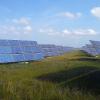
Solar Cell Simulation
Source Institutions
In this activity, learners model the flow of energy from the sun as it enters a photovoltaic cell, moves along a wire and powers a load.

Build a Raft
Source Institutions
In this activity, learners explore density and buoyancy as they design and construct rafts.
